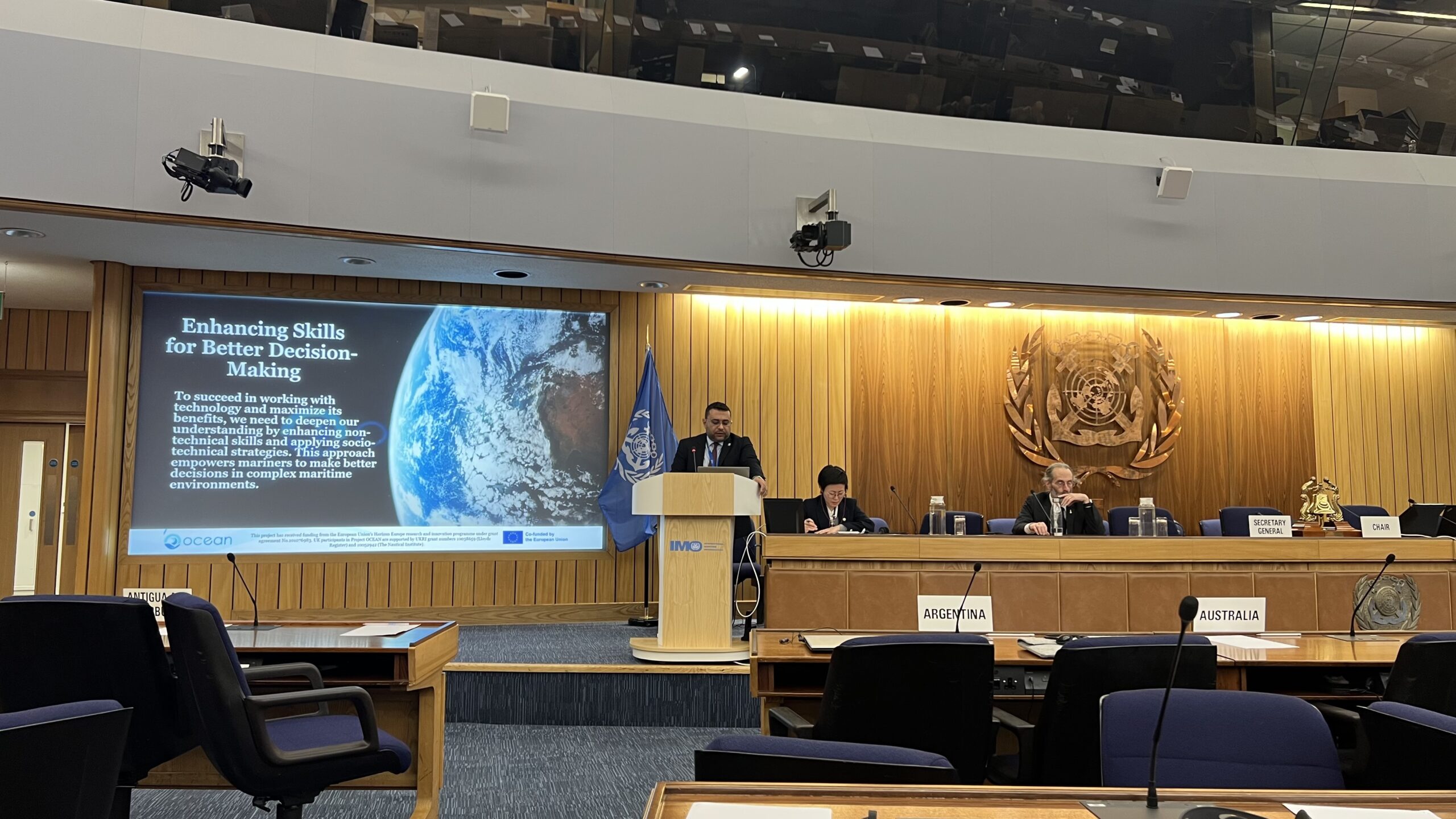Maritime Safety and Human-Centred Design Takes Centre Stage at SDC-11
The OCEAN Project recently shone at the 11th session of the Sub-Committee on Ship Design and Construction (SDC-11) with an impactful presentation on Human-Centred Design (HCD) in maritime safety. This pivotal event showcased the collaborative efforts of The Nautical Institute, the International Transport Works federation (ITF), and other key stakeholders concerned in improving safety practices across the maritime industry.
Key Highlights from the Presentation
The event brought together leading experts, including Dr. Jonathan Earthy from Lloyd’s Register, Professor Margareta Lützhöft from the Western Norway University of Applied Sciences, and Capt. Aly Elsayed, Senior Technical Advisor and Master Mariner at The Nautical Institute.
The overarching theme of the presentations was clear: effective safety solutions must be practical, user-friendly, and adaptable to the complex and dynamic nature of the maritime industry.
A standout moment was the inclusion of the OCEAN Project’s training video, Maritime Safety with HCD. The video demonstrated the critical importance of placing seafarers—the end-users—at the centre of design and testing processes. By directly involving those who interact with maritime systems daily, the video highlighted how safer and more effective solutions can be achieved.

Collaboration and the Future of Maritime Safety
The presenters, highlighted findings from the OCEAN Project survey, emphasising the critical need for collaboration between designers, users, and regulators to address existing safety gaps. Together they underscored that Human-Centred Design plays a vital role by ensuring the integration of the end-user’s perspective—particularly seafarers—throughout the development and implementation process.
This approach not only results in practical and functional solutions but also fosters trust, engagement, and a sense of ownership among crews, ultimately enhancing the effectiveness of safety measures
The success of the OCEAN Project is rooted in its robust partnerships with influential organisations, which facilitate connections with a wide network of seafarers, academics, environmentalists, manufacturers and regulators.
These collaborations greatly expand the project’s reach and impact, creating opportunities to share knowledge, resources, and best practices. By capitalising on these relationships, the OCEAN Project continues to drive meaningful progress, advancing its mission to enhance safety and professionalism throughout the maritime sector.
The OCEAN Project remains steadfast in its commitment to enhancing maritime safety through innovative, user-focused approaches. By embracing Human-Centred Design, the maritime industry can redefine safety standards and improve the well-being of seafarers worldwide.
As we navigate the future of maritime operations, predictive accident investigation will be the cornerstone of ensuring the highest safety standards and promoting a culture of continuous improvement in the marine industry.
